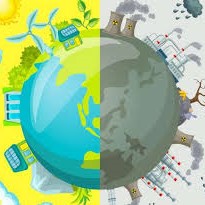Today, November 17, marks exactly one year of the first person being infected with COVID-19. A 55-year old individual, based in the Hubei Province in China, was the first one, when a month later, it was suspected that the novel virus originated from the wet markets. China, concealed the intricate details about the virus for a very long time. In India, following the timeline, the first case was reported on January 30, 2020.
It was only in March, nearly four months post the first case, that World Health Organization declared it a global health emergency. The countries were in severe panic mode, as the virus’s transmission had a very different pattern. International travel was first banned, following which domestic travel was slowed down, after which countries announced intense lockdown.
So, to avoid the transmission of novel Coronavirus, intense lockdown was announced with strict confinement to the residence. This invoked a lot of impact on various sectors of life. It impacted the dynamics of education, work-culture, family-time, personal space as an individual perspective. On a broader scenario, Covid-19 induced lockdown impacted the financial infrastructure of the world, nation, states and individual economic condition.
Unemployment has risen in various sectors, particularly travel and tourism, education, media and film industry, and event management and there was a lot of pressure on the healthcare professionals and other frontline workers. Teachers, working in private schools and colleges have lost their jobs and switched to different forms of employment like selling fruits or vegetables or menial chores like carpentry, painting etc. A lot of people held up in various professionals, have their salaries unpaid for months and bank loans have been pending. More than any other losses, people have lost their lives, health, and their near and dear ones. The loss of life has been very overwhelming for a disease that comes with just utter negligence.
Digitalization has taken the picture in terms of running the show in the education, business and socialization imperatives. But, what Covid-19’s physical confinement and social distancing has induced is much more on the psychological forefront and more than anything is a mental battle. A mental battle to keep presence of mind, to take the decisions of self-care and physical restrain even when everybody is taking the chance to go about with the relaxations given.
Even as a year passed since the first case of Covid-19, people have surely learned to cope up with the adapted lifestyle protocols. But, the world now is never going to be the same.It is Pre-Covid, where socialization and physical presence was required, acknowledged and appreciated and now, Post-Covid, where socialization comes with a stigma, taboo and “life-threatening disease”. But, as iterated, this is more of a psychological battlefield, so, even as, physical confinements are mandate, we can still continue to support, acknowledge and help people with their mental health in this journey as vaccine still has a long time to go, and even after its launch, to be satiated for over 7.4 billion humans, is an ardent task.


